Introduction
Duck eggs, a culinary delight enjoyed across various regions, often find their way into traditional recipes that call for preservation techniques such as salting. While the salty flavor can enhance the taste profile of many dishes, over-salting can turn even the most anticipated meal into a disappointment. Whether you’ve accidentally added too much salt during the pickling process or purchased over-salted duck eggs from the market, there are several effective methods to reduce their saltiness and restore their enjoyability. This article delves into various techniques, explaining not only how to apply them but also the science behind each method, ensuring that your duck eggs regain a balanced flavor.
Understanding Saltiness in Food
Before diving into the solutions, it’s crucial to understand why foods become too salty and how our taste buds perceive this sensation. Saltiness is primarily detected by sodium ions (Na+) on our taste receptors. When food is overly salted, these ions are present in high concentrations, overwhelming our palate and making the dish unpleasant. Reducing saltiness involves diluting these ions or altering their perception without compromising the dish’s overall taste.
Methods to Reduce Saltiness in Over-Salted Duck Eggs
-
Water Soaking Method
One of the simplest and most straightforward methods to reduce the saltiness of duck eggs is soaking them in water. This technique leverages the principle of osmosis, where water molecules move through a semi-permeable membrane (in this case, the eggshell) to balance out the concentration of solutes (salt) on both sides.
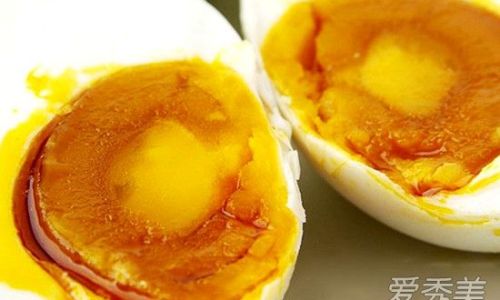
Steps:
- Place the over-salted duck eggs in a bowl or container.
- Cover them completely with fresh, cold water.
- Allow the eggs to soak for several hours or overnight, depending on the severity of the saltiness.
- Change the water periodically to enhance the desalination process.
- After soaking, peel the eggs and taste to check for the desired salt level. If still too salty, repeat the soaking process.
Science Behind It:
Osmosis works because water naturally flows from a region of lower solute concentration (pure water) to a region of higher solute concentration (salted egg interior). Over time, this helps to dilute the salt inside the egg. -
Boiling and Simmering
Boiling or simmering duck eggs in water can also help reduce their saltiness, albeit more aggressively than soaking. This method accelerates the osmosis process by increasing the temperature, which speeds up molecular motion.
Steps:
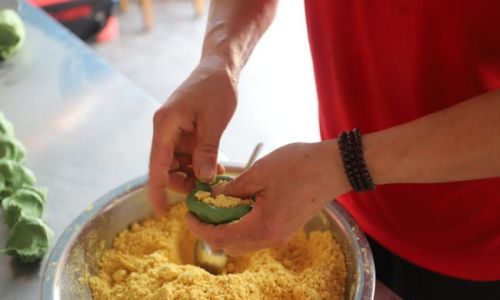
- Place the eggs in a pot and cover them with water.
- Bring the water to a boil, then reduce the heat to a simmer.
- Allow the eggs to simmer for about 10-15 minutes.
- Remove the eggs from the pot and let them cool.
- Peel and taste to assess the saltiness. If needed, repeat the process with fresh water.
Science Behind It:
Higher temperatures increase the kinetic energy of water molecules, facilitating faster diffusion through the eggshell. Additionally, boiling may cause some salt to leach out into the cooking water. -
Rinsing and Blotting
For those who prefer a quicker fix, rinsing the peeled duck eggs under running water followed by blotting them dry can offer immediate relief from excessive saltiness.
Steps:
- Peel the duck eggs.
- Hold each egg under cold running water and gently rub it to remove surface salt and some internal salt through the pores of the egg white.
- Use a paper towel or clean cloth to blot the eggs dry.
- Taste and, if necessary, repeat the rinsing process.
Science Behind It:
Rinsing helps to physically wash away excess salt on the surface and, to a lesser extent, within the pores of the egg white. Blotting ensures that no additional water dilutes the egg’s flavor further.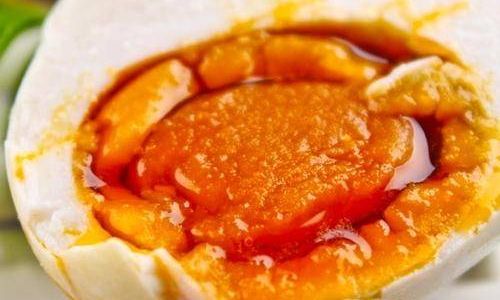
-
Soaking in Milk or Buttermilk
An unconventional yet effective method involves soaking duck eggs in dairy products like milk or buttermilk. These liquids contain casein, a protein that can bind to sodium ions, effectively reducing their concentration in the egg.
Steps:
- Peel the duck eggs.
- Place them in a bowl or container filled with milk or buttermilk.
- Allow the eggs to soak for at least 2-3 hours, preferably refrigerated to prevent spoilage.
- Remove the eggs, rinse them lightly if desired, and taste.
Science Behind It:
Casein in milk has a natural affinity for sodium ions, effectively ‘trapping’ them and reducing their availability to our taste buds. The lactic acid in buttermilk may also help balance the flavor. -
Wrapping in Wet Paper Towels
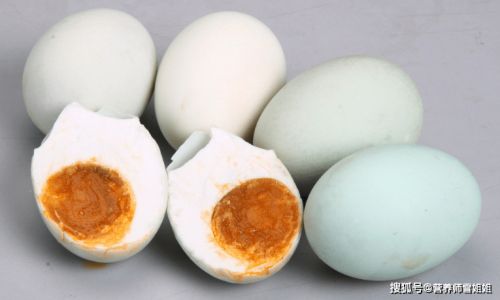
This method uses evaporation to concentrate the non-salt components of the egg while allowing some of the salt to remain on the exterior, which is then absorbed by the paper towel.
Steps:
- Peel the duck eggs.
- Wrap each egg individually in a damp paper towel, ensuring it’s not soaking wet.
- Place the wrapped eggs in a single layer on a plate.
- Cover the plate with plastic wrap to prevent drying out too quickly and place it in the refrigerator.
- Let the eggs sit for several hours or overnight.
- Unwrap and taste.
Science Behind It:
As the water in the paper towel evaporates, it draws some of the salt from the egg’s surface, leaving the interior less salty. The refrigeration slows the process to avoid over-drying the eggs. -
Cooking with Other Ingredients
Incorporating other ingredients into dishes containing over-salted duck eggs can help mask the saltiness and balance the overall flavor.
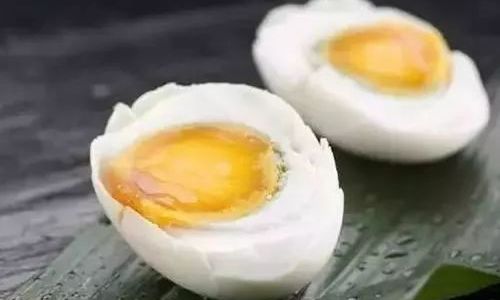
Ingredients to Use:
- Acidic Foods: Lemon juice, vinegar, tomatoes, or any citrus can help counteract saltiness by enhancing other taste sensations.
- Sweeteners: A pinch of sugar or honey can balance out saltiness, especially in savory-sweet dishes.
- Fatty Foods: Cream, butter, or oils can help distribute the salt more evenly and reduce its perceived intensity.
- Herbs and Spices: Fresh herbs, garlic, onions, or spices like paprika and cumin can add complexity to the dish, distracting from the saltiness.
Application:
When preparing a dish, add these ingredients thoughtfully to complement the duck eggs rather than overpower them. Adjust quantities based on taste during cooking.
Conclusion
Over-salting duck eggs doesn’t necessarily mean the end of your culinary endeavors. With a variety of methods at your disposal, from simple soaking and boiling to more innovative approaches like soaking in dairy or wrapping in wet paper towels, you can effectively reduce their saltiness and restore balance to your dishes. Each method carries its own science and nuances, so experimenting to find what works best for your taste preferences and cooking style is recommended. Remember, the key to successful flavor adjustment lies in patience, careful tasting, and a willingness to explore different techniques. Happy cooking!





0 comments